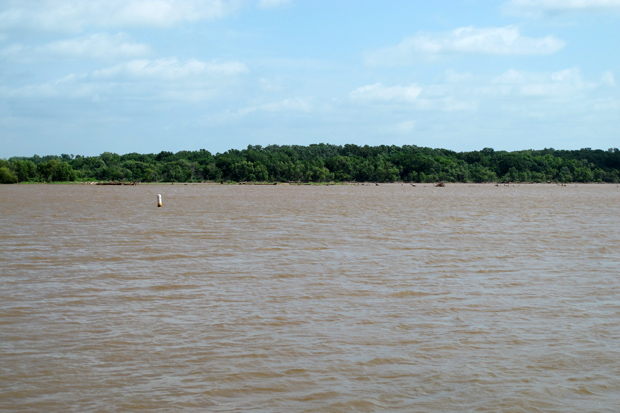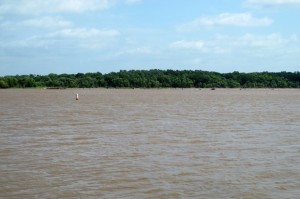
Lake Thunderbird is Norman's main source of drinking water and is classified as 'impaired' by the EPA.
Logan Layden / StateImpact Oklahoma


Lake Thunderbird is Norman's main source of drinking water and is classified as 'impaired' by the EPA.
Logan Layden / StateImpact Oklahoma

Logan Layden / StateImpact Oklahoma
Lake Thunderbird, near Norman, Okla.
It was around this time last year that the Norman City Council decided to stake its water future on reuse — sending cleaned wastewater back into Lake Thunderbird, the city’s main water source. It’s an ambitious, future-looking plan Norman Mayor Cindy Rosenthal says is in line with the state’s goal of using no more water in 2060 than it did in 2012.
But Norman isn’t the only city that relies on Lake Thunderbird for its water, and Midwest City and Del City are against the plan, which will make it more difficult to bring the idea before the Department of Environmental Quality for approval.
As The Oklahoman‘s William Crum reports, Rosenthal is calling the two cities’ opposition to the plan premature:
Until about a month ago, Rosenthal said, “We were all on the same page.”
… Rosenthal said in a telephone interview that Norman’s advocacy of including re-use of wastewater among its water conservation strategies is a reflection of residents’ values.
“Norman has an expectation that we’re going to be good stewards of the water resource as we grow,” Rosenthal said. “I think we’re more in step with where the statewide leadership is going.”
… Rosenthal noted that Norman is a growing community whereas Midwest City and Del City are not, and said “there’s not the same demand in their communities for conservation.”
StateImpact has reported on the importance of reuse as drought becomes more common and water a more valuable and limited resource. But Del City City Manager Mark Edwards tells the paper Lake Thunderbird’s small watershed and the potentially for contaminating it with currenlty unregulated chemicals makes it a poor candidate for reuse:
Lake Thunderbird lacks the ability to flush itself like most lakes, he said.
“The water that comes in is the water that we get,” Edwards said. “We have to be concerned not only about the quantity of the water that comes into the lake, but also the quality.”
Edwards said elected leaders in Midwest City and Del City think more needs to be known about “contaminants of emerging concern.”
The term is applied to unregulated chemicals that get flushed down the toilet or washed down the drain and are associated with products ranging from medications to hair gel.
Edwards says he wants to see more scientific studies on what putting wastewater will mean for the lake, and until he does, the plan won’t get his city’s support.
Clarification: An earlier version of this post said Norman’s reuse plan would need the approval of Midwest City and Del City before it went to the Department of Environmental Quality. Actually, it’s the Central Oklahoma Master Conservancy District that will vote on the plan, and the two cities have representatives on COMCD’s board.